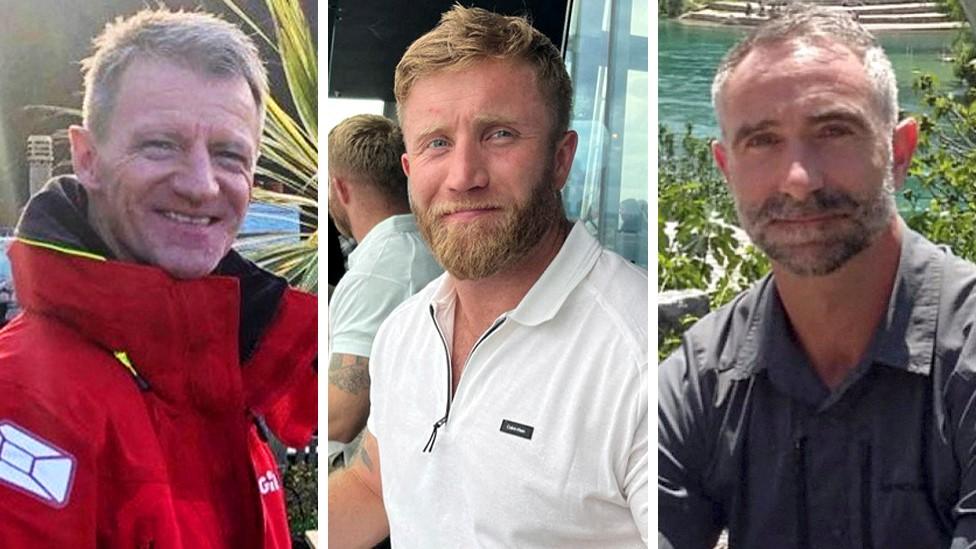Israeli minister denies claim aid workers deliberately targeted
- Published
Watch: Video shows World Central Kitchen vehicles destroyed in Gaza air strike
An Israeli cabinet minister has denied claims Israeli forces deliberately targeted seven World Central Kitchen (WCK) aid workers in Gaza.
WCK founder José Andrés has accused Israel of targeting his workers "systematically, car by car".
Nir Barkat, Israel's minister of economy, told BBC News that Mr Andrés' allegations were "nonsense".
Israel says the strikes which killed the workers were a "grave mistake" and has promised an investigation.
On Wednesday, Mr Andrés told Reuters news agency that what the Israeli forces had done was not a "bad luck situation where, 'oops', we dropped the bomb in the wrong place".
Jose Andres says Monday's strike which killed seven members of his staff was not a mistake.
In a separate interview with Israel's Channel 12 news, the Spanish-American celebrity chef said "it was really a direct attack on clearly marked vehicles whose movements were known by everybody at the IDF [Israel Defense Forces]".
Following Mr Andrés' comments, Nir Barkat told the BBC Israel was "terribly sorry" about killing the seven aid workers but that "unfortunately, in wars friendly fire happens".
He said "it's part of war, we do everything we can that it will not happen and learn [from] the incident and make sure it does not happen again".
The killings have drawn widespread international condemnation. UK Prime Minister Rishi Sunak has "demanded a thorough and transparent independent investigation", while US President Joe Biden accused Israel of not doing enough to protect aid workers and civilians.
"The United States has repeatedly urged Israel to deconflict their military operations against Hamas with humanitarian operations, in order to avoid civilian casualties," Mr Biden said.
Asked specifically about Mr Andrés' concerns that his aid workers had tried to call the IDF during the separate strikes, and that they had been deliberately targeted, Mr Barkat said: "That's nonsense, I'm sorry."
Watch: BBC asks Israeli minister if aid workers were targeted
"With all due respect there's no way in the world that Israel would target people that come to give people aid," he said.
Hamas, he added, intentionally attacked Israeli villages on 7 October, raping and killing women.
According to WCK, the aid convoy was hit while leaving the Deir al-Balah warehouse, "where the team had unloaded more than 100 tonnes of humanitarian food aid brought to Gaza on the maritime route".
The convoy was made up of three vehicles, including two that were armoured, which clearly displayed the charity's logo.
The vehicles were around 2.5km (1.5 miles) apart and all three were hit during the attack.
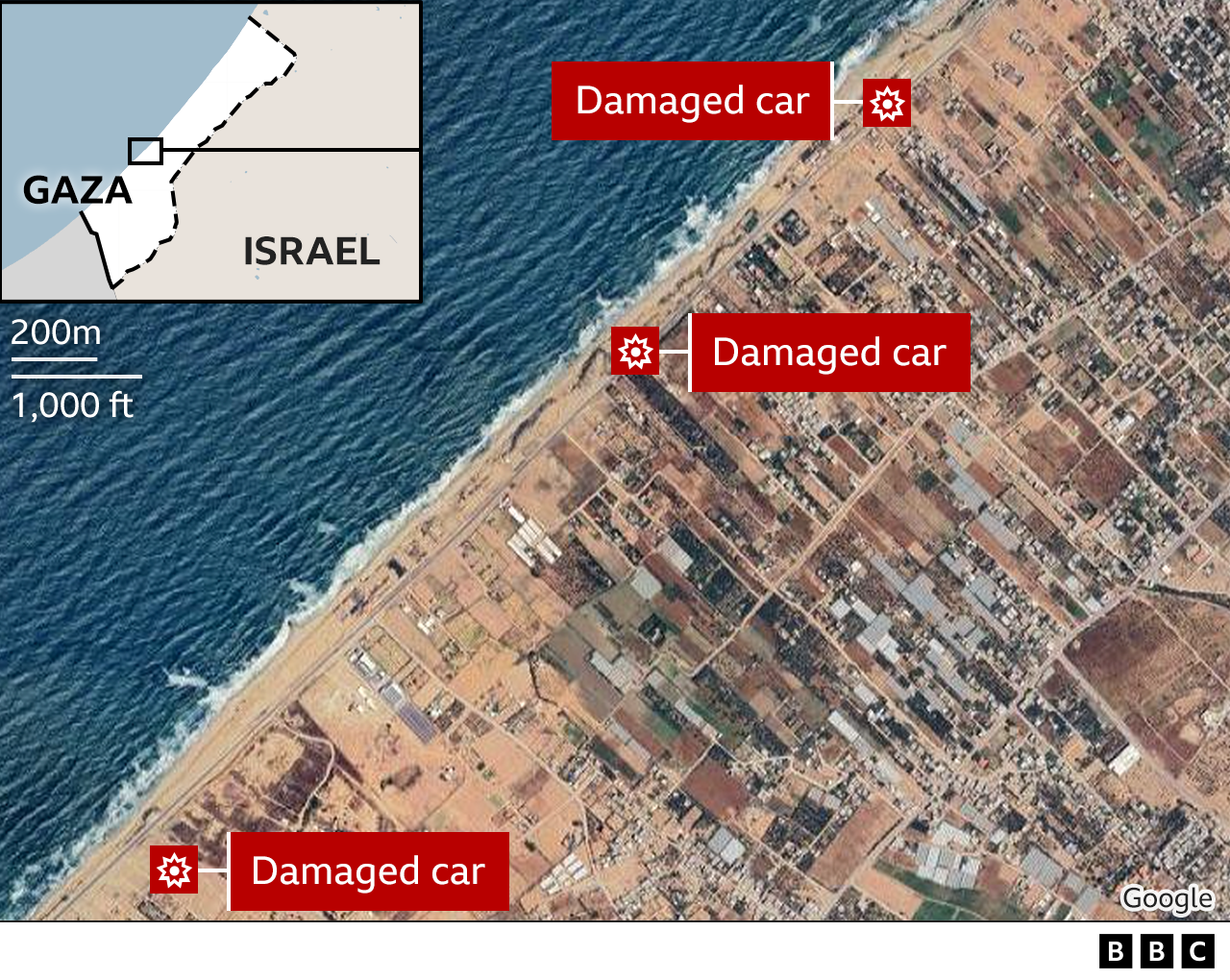
The bodies of six of the foreign WCK workers have been taken to Egypt to be repatriated and their 25-year-old Palestinian colleague was buried in his hometown in Rafah, southern Gaza, on Tuesday.
WCK announced that it had suspended operations on Tuesday, putting humanitarian aid to the Gaza Strip in doubt.
According to Cogat, the Israeli defence ministry body in charge of civilian policy in the occupied West Bank and Gaza, WCK is responsible for 60% of the non-governmental aid getting into the territory.
WCK said it had distributed 42 million meals in the Gaza Strip - dispatching more than 1,700 food trucks and also sending close to 435,000 meals by sea.
The UN also announced it was pausing movements at night for at least 48 hours to evaluate the security situation.
And a second charity, the American Near East Refugee Aid (Anera), which was working closely with WCK, told the BBC it has also frozen its operations in Gaza.
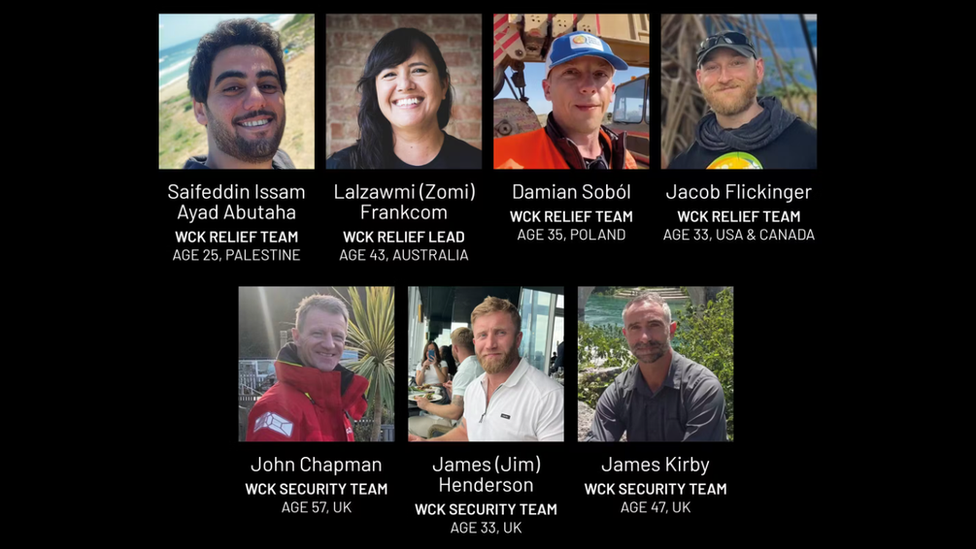
WCK released pictures of the victims
Israeli Prime Minister Benjamin Netanyahu has described the strike as unintentional.
"It happens in war, we check it to the end, we are in contact with the governments, and we will do everything so that this thing does not happen again," Mr Netanyahu said on Tuesday.
Three of the killed aid workers were British nationals. A Polish national, an Australian, a Palestinian and a dual US-Canadian citizen were also killed.


More than 196 aid workers have been killed in Gaza since October, according to the US-funded Aid Worker Security Database, which records major incidents of violence against aid personnel. Not all have been killed in the line of duty.
Much of the Gaza Strip has been devastated during the Israeli military operations that began after Hamas-led gunmen attacked southern Israel on 7 October, killing about 1,200 people and seizing 253 hostages.
About 130 of the hostages remain in captivity, at least 34 of whom are presumed dead.
More than 33,000 people have been killed in Gaza since then, the Hamas-run health ministry says.
- Published5 April 2024
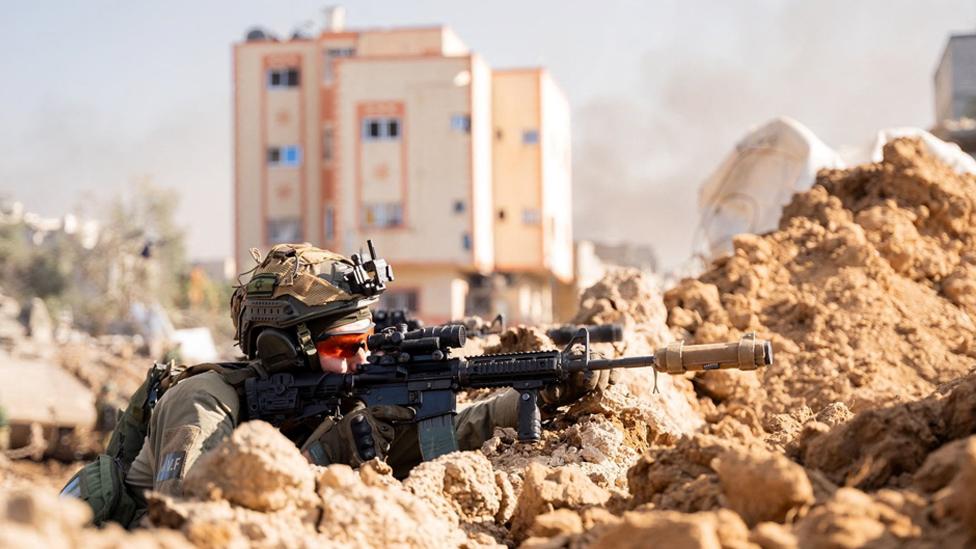
- Published5 April 2024
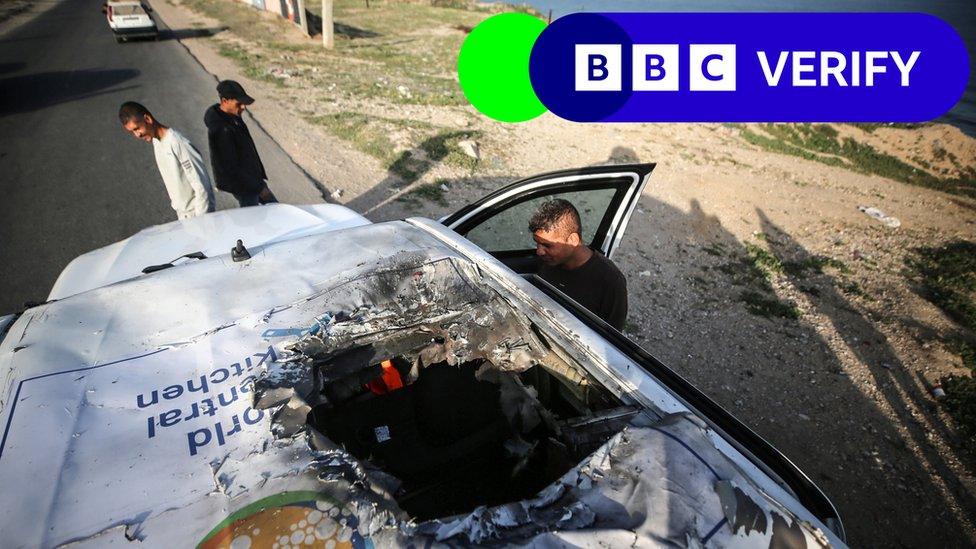
- Published2 April 2024
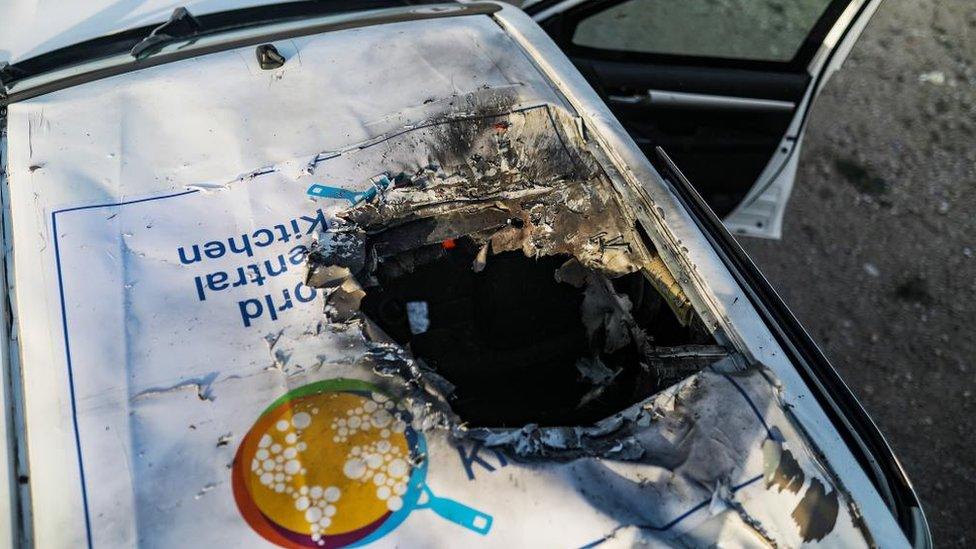
- Published4 April 2024
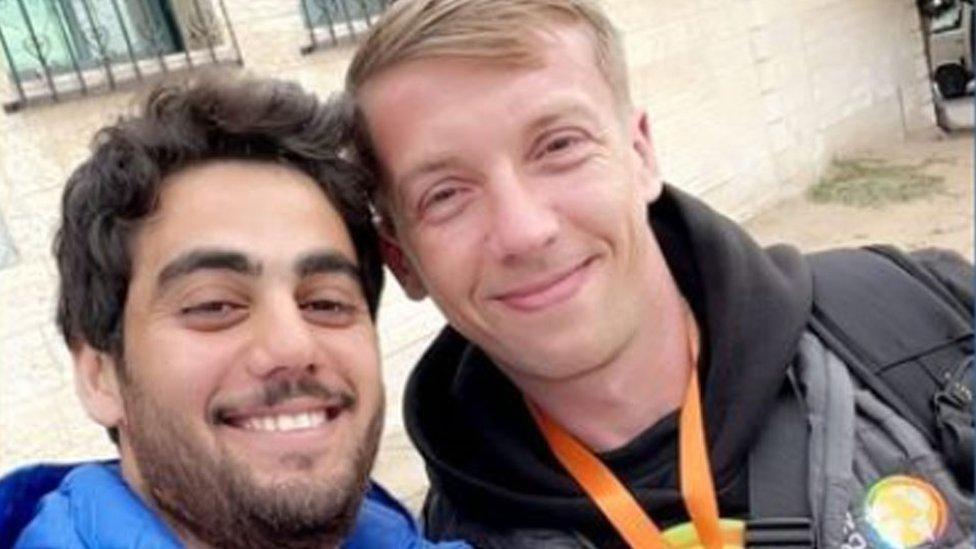
- Published3 April 2024
